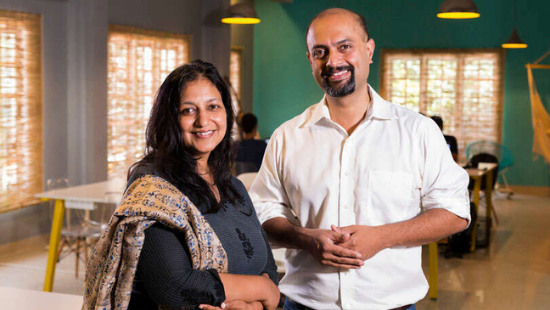SMEs who aren't selling internationally can 'lose out'
Brad Sheer, COO of Stream, suggests businesses could "lose out" if they don't branch out and diversify, given that catering to an international market creates a more resilient company.

Jo Aggarwal and Ramakant Venopati first started out working at Pearson and a Goldman Sachs firm in London respectively. When working at the firms, Jo and Ramakant spent their time assisting and educating young people with getting loans to pay off their houses and mortgages, they told Techinasia in an exclusive interview and soon grew to become inspired by the social impact they had on youths.
As a side project, they began to create a machine which could detect depression, using sensor feeders from a phone, which was able to detect mental illness with 90 per cent accuracy. Nonetheless, although the machine was able to detect depression in its users, it remained unable to do anything to combat the issue.
Thus sprung Jo and Ramakant's brainchild – Wysa. Working with over 60 psychologists and 15,000 users, the AI-powered chatbot has helped over five million people manage their mental health and provide them with much-needed support, through 550 million AI conversations across 90 countries, according to a report they released in 2020.

The message of Wysa's story is perhaps to start dreaming big.
International Business Times UK had the pleasure to speak with Wysa during the 2023 SME EXPO in London. The mental health support platform was only one of the many SMEs which were present at the event in Custom House.
Wysa's VP of marketing at the SME EXPO, Sarah Baldry, emphasised the fact that, although the start-up first began in India, Wysa has since branched out internationally, moving their offices to the US and the UK. What started out as a start-up in India, eventually would grow to become a valuable tool used by the NHS, and has since received various accolades from organisations such as Mind and ORCHA.
We also spoke with other businesses who attended the event, discussing what it means to be in the SME space, and many of the businesses present told us more or less the same thing; globalisation is an important factor - not just to the mental health sector - but for other enterprises to spread out their roots globally.
When speaking with Rory McDonnell, who works with the UK government's Department for Business and Trade, he advised SMEs and start-up companies to extend their businesses internationally, asserting the idea that diversifying businesses to different markets remains a brilliant idea.
As for the reasoning behind this? Diversifying and trading internationally essentially makes your business more resilient, as it allows companies to build their portfolios while making the business tougher against economic shocks.
"If you're just trading domestically, only in the UK that is a big market, but it's still a small market on the global scale," he explains. "If you go international, when there are some challenges in the UK, there may not be in, say, Argentina, or Japan."
Trading with other, overseas companies may allow SMEs to overcome more challenges that are more national, as the other countries would most likely not be suffering from the same problem.
Although it may present itself as a daunting idea at first, McDonnell ascertains that going international is in any SMEs best interest. He continues by saying: "Those businesses that have taken those steps ultimately feel more resilient against those threats."
However, extending your business isn't without its own challenges, given that "it can be a complex world, international trade," because "each country has its own rules," McDonnell told us.

Whether it's VAT prices, distinct economies, or differences in culture, it's paramount to understand how business is conducted when dealing with international companies overseas. He encourages SMEs to figure out how business is dealt with overseas, as it may not be conducted in the same way it would be done in, say, the UK.
Language barriers may also be hard to overcome when trading internationally, as, although English may be considered the lingua franca of the world, not everyone speaks the language. An important part of expanding a business internationally is becoming more aware of the differences and distinctions in other customs and cultures around the world.
Other trials businesses may have to deal with when exporting products include custom clearance and steep prices when transporting goods, due to the fact that the cost of freight has recently skyrocketed due to the effects of the COVID-19 pandemic.
"When COVID hit, the price of everything skyrocketed," explained Brad Sheer, COO of Stream – a member of the VAT IT Group.
Sheer was another presenter at the event, who we had the pleasure of speaking with. He continued: "When something skyrockets, it's never coming back to its original standards. The world has definitely gone crazy from an inflammatory perspective."
Nevertheless, the mere increase in freight should not discourage SMEs seeking to export and transport goods, as companies such as Stream have devised a rather shrewd solution to the issue by consolidating freight for people.
Sheer further explained how "the more goods you ship, the cheaper it becomes for you." By setting consolidations into places, such as Europe, the whole cost of freight comes down, as the goods are shipped in a more "cost-effective manner".
Encouraging businesses to broaden their horizons, he reminds enterprises that, while trading with local markets is always good, the volume of what an international market can offer is enormous. Sheer reminds other businesses that: "If you're not selling internationally, you're going to lose out."
© Copyright IBTimes 2025. All rights reserved.





















